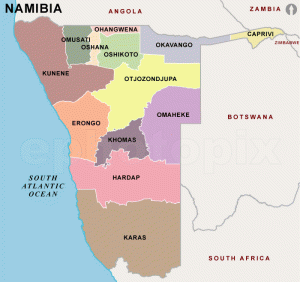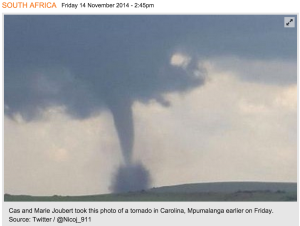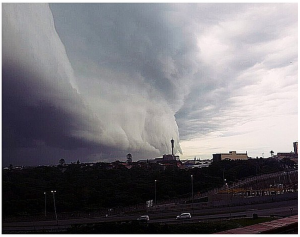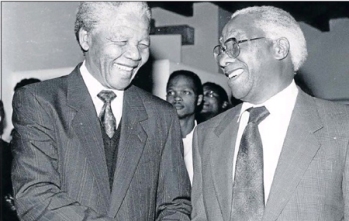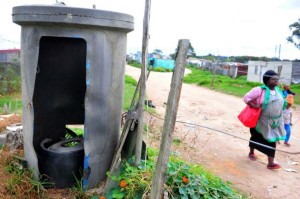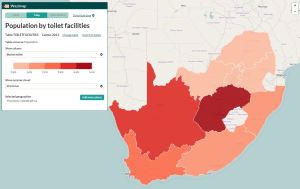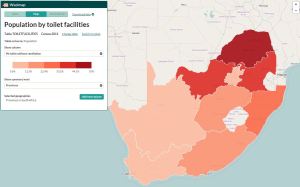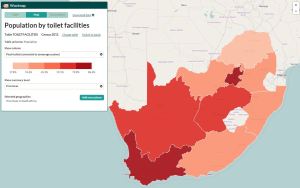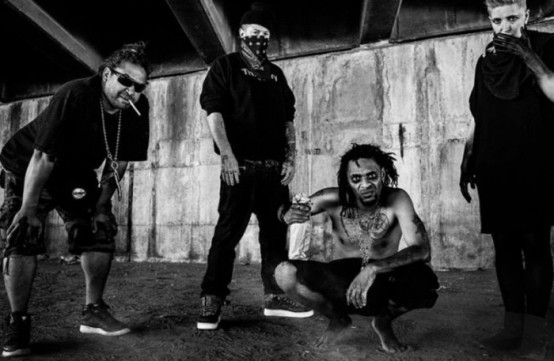
I begin from the premise that hip hop is a culture with 5 elements, (Rap, Dance, DJing, Graffiti and Knowledge of Self). These elements are used as a form of expression of feelings, thoughts or injustice.
I had really hoped I wouldn’t have to do this. I quietly prayed every night since the video for Dookoom’s new EP dropped, that the South African academia would not relegate the progression of hip hop from its colonization by the United States bling and pornography culture, to a bunch of whiteys on Western Cape farms feeling scared and nervous.
First we must recognise the multitude of issues faced by the mainly coloured population, raised by Isaac Mutant in “Larney Jou P**s” and we must note who he really is. Isaac Mutant was once part of Prophets of the City; a Cape Flats based rap group with other notable members such as DJ Ready D, that began its opposition to apartheid policies through politically charged lyrics in late 1988.
After a few decades in which Isaac Mutant’s music fell through the cracks of mainstream media, he now re-emerges in a group with UK born producer and owner of Cape Town based record label Pioneer Unit Damian Stephens, known as D-Planet or Human Waste. Stephens has worked with several South African acts, including Gugulethu based crew Driemanskap and the Soweto born underground hip hop veteran Ben Sharpa. Stephens has also facilitated multiple European tours for Cape Town based artists, who despite international appeal, still struggle to get airplay locally.
So what is Isaac Mutant really talking about in the recently released song? He says;
“Look at your founding father’s curriculum vitae/Jan van Riebeck was the fuckin’ Ernie Lastag of his day”
Ernie “Lastag” Solomon was a well-known Cape Flats gangster, whose life story went on to become a movie.
Isaac Mutant goes on to claim that the infamous 26s and 28 gangs were born out of frustration with the colonizers from the Dutch East India Company.
“He did pigallela with depression and hunger/Some brothers rebelled, hence Nongoloza and Mpumalanga/ Up in your quarters you’re calling my people bandits, dammit! Hater taught hate, that’s why we gang bang it/ My family spread over the plantations/ And by the way, who the fuck is you to call my frustrated as racist”
Then there’s the re-mixed nursery rhyme that made rights group Afriforum lay a complaint with the Human Rights Commission;
“Father Abrahams had many farms/ I work on one of them and so do you/ So let’s go burn them down”
Well, let’s see how the Commission will respond.
Before the frustration and rebellion of farm workers against their employers is attributed to a hip hop song made by a Cape Flats rapper, who really isn’t saying anything he hasn’t said before, we should ask if Dookoom really has the power to spring thousands of mainly uneducated labourers whose favourite genre of music is highly unlikely hip hop, into a rage that would end Western Cape farming. This writer thinks not.
The style of hip hop presented by Dookoom is raw, hard and jaw grinding, but it is not surprising. Pioneer Unit is known to base its videos on the culture of its artists. For Driemanskap’s videos, the artists tell stories of Xhosa cultural practices and norms, wearing their traditional attire. Then for Dookoom, Isaac Mutant tells a story of coloured people’s history and culture, using what is known as Afrikaaps. (Afrikaaps refers to the informal (sometimes vulgar) version the Afrikaans language spoken by coloured people. A collective of Cape Town artists have also toured the EU, playing a live musical in Afrikaaps to Dutch speaking audiences.)
The truth is that it’s not so much the release of Dookoom’s video, but the reaction to it in the public space that represents a very important moment for the country’s young culture. Dookoom is by no means the first rap group to make music and videos questioning the status quo and lack of reform in SA.
Two years ago, Motif Records, owned by world renowned SA rapper Tumi Molekane, sought to dissect what drove South Africa’s men to abuse women, physically and emotionally. The POWA (People Against Woman Abuse) mixtape spoke about President Jacob Zuma’s rape trial and commentary from the likes of Pro and others on the club culture that often sees young women exchange a night of drinking and taking drugs for quick sex. This mixtape, and other similar projects, generate a very mild reaction, if any.
There are countless examples of prominent hip hop artists critically examining the issues of the day, but I suppose the reason Isaac Mutant and the Dookoom crew struck a nerve, is because their video “Larney Jou P**s” is a graphic representation of the future South Africa’s boers have always hoped they will never see. A glimpse of the faces that would rebel against them, torch their crops, kill their relatives and bring forth the Afrikaner apocalypse, a mass exodus into the sea.
This delusion has been created, shaped and enhanced by the boers themselves. One could argue that the reason a rebellion is expected is because the farmers are well aware of the extent to which their workers have been exploited by meager wages and dereliction of living conditions, especially on the Western Cape. They are also well aware of the effect their great grandfathers’ introduction of the dop and food payment system on Western Cape farms has had on the psyche of the farm workers families and children, who are now young uneducated men and women who want more than a hokkie to sleep in and R150 a day.
Now before you start throwing a tantrum about how government is supposed to give farm workers houses, education and restore their dignity, consider this; The South African government generates about 30 percent of the country’s economic growth, while the private sector accounts for the other 70 percent. A large chuck of this 70 percent comes from SA’s export industry. In 2010, 47% of the Western Cape export commodities came from agricultural sector, most of it citrus fruits, destined for countries such as the Netherlands, United States, Britain and Angola. So, should the boers be obliged to build houses and schools for their employees, and improve their general standard of living?
The question really is, are the boers willing to share the land their workers have helped cultivate for over four hundred years. The answer may not be as simple as you think.
The ANC’s deputy Secretary General Jessie Duarte is not convinced. At the ANC in Gauteng’s conference this month, she said;
“As soon as our Land Reform minister announced the 50-50 ownership plan for farm employees who had been working and living on the land for years, the boers starting evicting them off the property.”
Shortly after the announcing the proposal, the Transvaal Agricultural Union called a special executive meeting to discuss it. These are two of the reasons TAU cited for its opposition to land reform.
“Farmers do not owe anyone anything. Farmers did not steal land. If government wants to implement a land reform process, it should be financed by government. The farmers do not need to do this on governments’ behalf and are not willing to do so.
Farmers are unable to finance 50 % of the funding of land reform farms. Moreover, it is unjust and unfair and farmers are simply unwilling to do so.” It said in a statement
The point is, Dookoom’s song and video is completely justified when considering the facts on which it is based. I then have to ask, are those calling for the song to be banned, trying to censor the truth or is this just another attempt to tell as selected narrative of the South African story.
Either way my larney, jou pudding pie.

